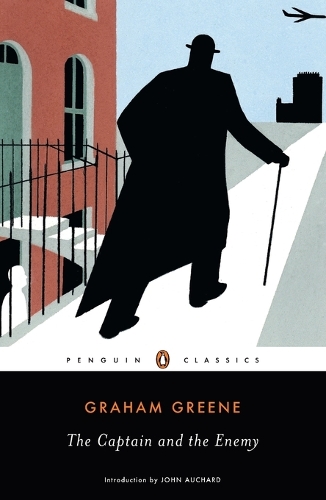
The Captain and the Enemy
(Paperback)
Available Formats
Publishing Details
The Captain and the Enemy
By (Author) Graham Greene
Introduction by John Auchard
Penguin Putnam Inc
Penguin USA
30th August 2005
United States
Classifications
General
Fiction
FIC
Physical Properties
Paperback
192
Width 130mm, Height 196mm, Spine 13mm
156g
Description
Victor Baxter is a young boy when a secretive stranger known simply as "the Captain" takes him from his boarding school to live in London. Victor becomes the surrogate son and companion of a woman named Liza, who renames him "Jim" and depends on him for any news about the world outside their door. Raised in these odd yet touching circumstances, Jim is never quite sure of Liza's relationship to the Captain, who is often away on mysterious errands. It is not until Jim reaches manhood that he confronts the Captain and learns the shocking truth about the man, his allegiances, and the nature of love. This Penguin Classics edition features an introduction by John Auchard. For more than seventy years, Penguin has been the leading publisher of classic literature in the English-speaking world. With more than 1,700 titles, Penguin Classics represents a global bookshelf of the best works throughout history and across genres and disciplines. Readers trust the series to provide authoritative texts enhanced by introductions and notes by distinguished scholars and contemporary authors, as well as up-to-date translations by award-winning translators.
Reviews
The master s hand is clearly at work ("The New York Times")
The masteras hand is clearly at work ("The New York Times")
The masters hand is clearly at work ("The New York Times")
The master's hand is clearly at work ("The New York Times")
Author Bio
Graham Greene (1904-1991), whose long life nearly spanned the length of the twentieth century, was one of its greatest novelists. Educated at Berkhamsted School and Balliol College, Oxford, he started his career as a sub-editor of The Times of London. He began to attract notice as a novelist with his fourth book, Orient Express, in 1932. In 1935, he trekked across northern Liberia, his first experience in Africa, recounted in A Journey Without Maps (1936). He converted to Catholicism in 1926, an edifying decision, and reported on religious persecution in Mexico in 1938 in The Lawless Roads, which served as a background for his famous The Power and the Glory, one of several "Catholic" novels (Brighton Rock, The Heart of the Matter, The End of the Affair). During the war he worked for the British secret service in Sierra Leone; afterward, he began wide-ranging travels as a journalist, which were reflected in novels such as The Quiet American, Our Man in Havana, The Comedians, Travels with My Aunt, The Honorary Consul, The Human Factor, Monsignor Quixote, and The Captain and the Enemy. In addition to his many novels, Graham Greene wrote several collections of short stories, four travel books, six plays, two books of autobiography-A Sort of Life and Ways of Escape-two biographies, and four books for children. He also contributed hundreds of essays and film and book reviews to The Spectator and other journals, many of which appear in the late collection Reflections. Most of his novels have been filmed, including The Third Man, which the author first wrote as a film treatment. Graham Greene was named Companion of Honour and received the Order of Merit among numerous other awards. John Auchard is a professor of English at the University of Maryland at College Park, and the editor of The Portable Henry James.
